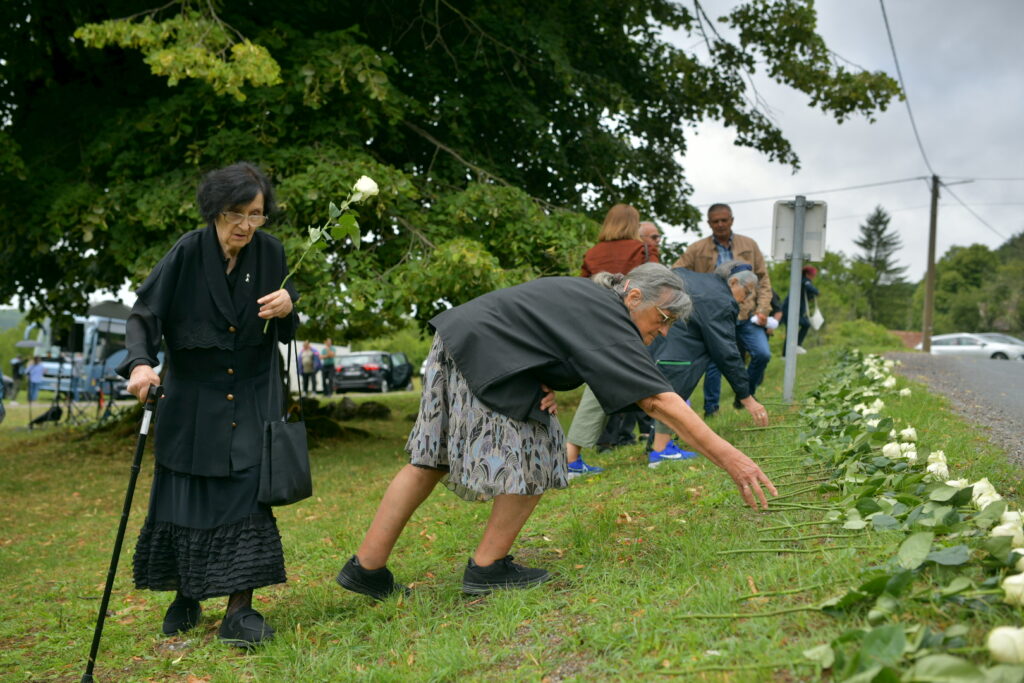On the 30th anniversary of the military-police operation Storm, the Serb National Council (SNV), as in all previous years, remembers with great sorrow the tens of thousands of people who were killed and wounded, both our fellow citizens of Croatian nationality and our Serb compatriots. We also remember and sympathise with the suffering of hundreds of thousands of Croats and Serbs who, faced with the dangers of war, threats, or force, were compelled to leave their homes and homelands, as well as their country. We particularly remember the suffering of our compatriots in the years of return, as well as those who never returned and who were permanently left without a home and a homeland in which generations of their ancestors had lived for centuries.
Instead of lessening over time, our grief and our compassion have only grown in the past 30 years. They still grow because there is less and less remembrance of the suffering of our fellow citizens of Serbian nationality, and, in Serbia, remembrance of the suffering of the Croatian people is also fading. They also grow due to official state remembrance policies, which continue to only move us further from creating and strengthening a genuine policy of peace and reconciliation between Serbs and Croats, between Serbia and Croatia. At the Serb National Council, we understand, and we will continue to understand, both of these trends as reasons to deepen our expression of compassion for the pain and suffering of others, and as motives to reinforce our efforts to ensure that remembrance policies become part of broader peace policies.
We will not be shaken or discouraged in this commitment by the increasingly loud and widespread presence of greetings, songs, and messages of hate (both anonymous and not) in our public space. Quite the opposite, it is our duty and responsibility to use our commemorative practices to remind society of the dishonourable, criminal legacy left behind by the greetings and messages associated with the Ustasha quisling creation known as the Independent State of Croatia (NDH). It is our duty to consistently demand that the Croatian President, the Parliament, and the Government protect the constitutional values of the Republic of Croatia and ensure a life free from fear and tolerated hatred. It is also our duty to insist that our education system provide young people with knowledge of what the NDH was and the extent and gravity of crimes it committed against Serbs, Jews, Roma, and antifascist Croats: crimes that render Ustasha slogans, songs, and symbols unconstitutional.
Despite the fact that these current circumstances make it harder to foster public awareness of all war victims, including and recognising Serb victims in Croatia, particularly civilian ones, we will persevere in these efforts. As part of that commitment, we will do everything we can to ensure that the responsible state authorities and institutions do not leave this task solely to non-governmental organisations, but actively take it on themselves, acknowledging NGOs as their partners in this process. We will continue to remind both the Croatian Government and the judiciary of their legal, internationally undertaken, and publicly declared obligation to prosecute crimes committed against Serb civilians. In the past thirty years, only three indictments have been raised, two of which resulted in convictions, those for crimes in Kijani and in Prokljan and Mandići. Among the unprosecuted cases is the crime committed against a refugee column travelling on the road from Glina towards Dvor, which was attacked in the area of Ravno Rašće, Donji Klasnić, and Donji Žirovac. On that occasion, 78 people were killed: 48 civilians, 17 soldiers, and 13 persons whose status has not yet been determined. The oldest victim was 99 years old, the youngest 23. The victims who died there, and were buried in the cemetery in Dvor, are yet to be identified.
At that site, and across the entire area of the Dvor municipality and the Banija region, it is our shared duty to remember that, beyond dignified commemoration and equal recognition of all victims of war and war crimes, we must also ensure basic life conditions: running water, maintained and functional roads. Above all, it is our responsibility to halt the decline of the modest but, over the past decades, somewhat restored local economy. We know that it will take time for Banija to regain its pre-war levels of livestock farming and fruit production, but we also know that unless we immediately begin supporting those who are living there now, the prospect of renewal will become as uncertain as the lives of those waiting for the state to help them build sustainable livelihoods.
Finally, we call on everyone to remember all the war victims, all the wounded, and all the displaced, all those whose loved ones were lost to them, those who survived but with diminished capacities, and those who were temporarily or permanently uprooted from their homelands. None of this was inevitable, let alone necessary. All of it might have been avoided, had there only been a greater commitment to preserving peace and protecting human life 35 or 30 years ago, and had people been given the freedom to choose.
Serb National Council, 3 August 2025

